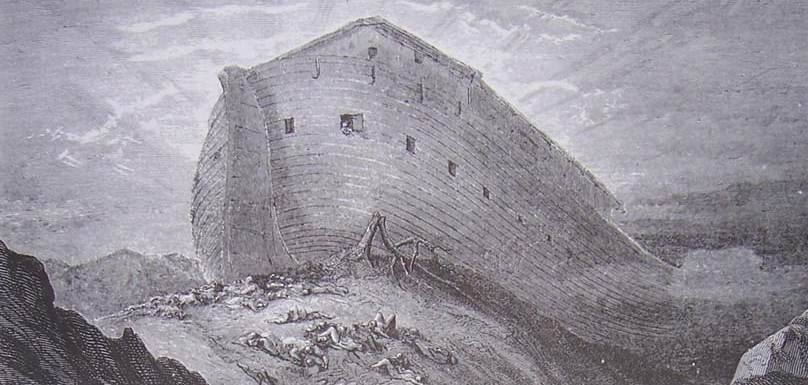Two by Two
It is common these days to hear Bible stories, especially those in the book of Genesis, described as being essentially mythological. The flood account certainly is widely thought to be mythological, though it is odd how many flood accounts exist in otherwise separate cultures. The Hindu text, the Satapatha Brahmana, describes a man called Manu as the lone survivor of flood, having been warned by a fish. The famous Babylonian Epic of Gilgamesh describes a destructive flood sent by the god Enlil, after he gets annoyed at how noisy humans have become. The book’s hero, Utnapishtim, builds a boat and survives.
Plato referred in Timaeus to the “the legend about Deucalion and Pyrrha after the Flood, and how they survived it”, and raised the possiblity that destructive floods caused a regular reset of history: “when, after the usual interval of years, like a plague, the flood from heaven comes sweeping down afresh upon your people,it leaves none of you but the unlettered and uncultured, so that you become young as ever, with no knowledge of all that happened in old times in this land or in your own.”
The Bible’s presentation is uniquely prosaic. “The Lord saw how great the wickedness of the human race had become on the earth, and that every inclination of the thoughts of the human heart was only evil all the time” (Gen 6:5). The flood was a punishment for a society that had lost all humanity. By contrast, “Noah was a righteous man, blameless among the people of his time, and he walked faithfully with God.” (Gen 6:9) God instructed Noah to build an ark–as is typical in the Bible, the instructions are presented in some detail–and load it with animals and food.
After a year or so of flooding, Noah sent out a dove to search for dry land:
“When the dove returned to him in the evening, there in its beak was a freshly plucked olive leaf! Then Noah knew that the water had receded from the earth” (Gen 8:11)
Water becomes a rich metaphor in the Bible. The Israelites will walk through the Red sea in order to escape from Egypt, and through the Jordan river to enter Canaan; Namaan is instructed to bathe in the Jordan to cleanse his leprosy; Jesus’ walking on water, and calming the stormy seas, will demonstrate his authority over nature. Christians will be instructed to “repent and be baptised”, the immersion in water representing death to the sinful self, and rebirth as a child of God.
Jesus himself will be baptised in water by John, and we again see a dove:
As soon as Jesus was baptized, he went up out of the water. At that moment heaven was opened, and he saw the Spirit of God descending like a dove and alighting on him. And a voice from heaven said, “This is my Son, whom I love; with him I am well pleased.” (Matt 3:16-17)
